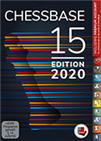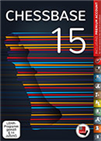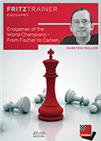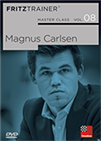Day 3
The Fischer Random World Championship semi-finals started with four "slow rapid" games in which players receiving 45 minutes for the 40 first moves, 15 minutes for the rest of the game, with no increment. Each win is worth 3 points, with 1½ points given to each player in case of a draw.
Day 3 was four fast rapid games played — 15 minutes plus 2-second increments — where each win is worth 2 points. Four blitz games — 3 minutes plus 2-second increments — will follow with each win is worth 1 point. Then, if necessary, an Armageddon tiebreak — 5/4 minutes, no increment, and Black advances if the game is drawn.
Full details below!
Live commentary
Download the PGN of Day 3 to examine the games in ChessBase.
Carlsen and So advance
Carlsen defeated Caruana and Wesley So dominated Ian Nepomniachtchi, thus Carlsen and So will face-off in the final beginning on Thursday.
| Rank |
Name |
Score |
Rating |
| 1 |
Carlsen, Magnus |
12½/20 |
2876 |
| 2 |
Caruana, Fabiano |
7½/20 |
2812 |
| Rank |
Name |
Score |
Rating |
| 1 |
So, Wesley |
13/18 |
2767 |
| 2 |
Nepomniachtchi, Ian |
5/18 |
2776 |
Semifinals live commentary
Download the PGN of Day 2 to examine the games in ChessBase.
Download the PGN of Day 1 to examine the games in ChessBase.
 The entry into the chess cosmos. ChessBase 15 program + new Big Database 2019 (7.6 million uncommented games). Plus 3 issues ChessBase Magazine and CB Premium membership for 6 months!
The entry into the chess cosmos. ChessBase 15 program + new Big Database 2019 (7.6 million uncommented games). Plus 3 issues ChessBase Magazine and CB Premium membership for 6 months! ChessBase is a personal, stand-alone chess database that has become the standard throughout the world. Everyone uses ChessBase, from the World Champion to the amateur next door. It is the program of choice for anyone who loves the game and wants to know more about it. Start your personal success story with ChessBase and enjoy the game even more.
ChessBase is a personal, stand-alone chess database that has become the standard throughout the world. Everyone uses ChessBase, from the World Champion to the amateur next door. It is the program of choice for anyone who loves the game and wants to know more about it. Start your personal success story with ChessBase and enjoy the game even more.Jumble up the pieces
The first FIDE-endorsed Fischer Random World Chess Championship started, in fact, a little over six months ago. A number of online qualifier events were set up, with events for non-titled participants kicking off the championship. A little later the titled players entered the scene, until the brackets for the six 16-player knockout qualifiers were completed.
Strong players like Alexander Grischuk, Sergey Karjakin or Jan-Krzysztof Duda were eliminated at the knockout stage, as six winners went through to the quarter-finals. While the knockout counted with twelve invited players, the quarter-finals included two starts that did not need to participate in any previous qualifier: Fabiano Caruana, as the last challenger for the world title in classical chess, and Hikaru Nakamura, as the former Fischer Random champion (Nakamura won the last Chess960 tournament held in Mainz, back in 2009).
The quarter-finals were organized in a way that only three players would go through. In the end, Wesley So, Fabiano Caruana and Ian Nepomniachtchi reached the semis that started this Sunday in Norway. The fourth semi-finalist is none other than world champion Magnus Carlsen, who defeated Nakamura in an unofficial match for the championship last year in Oslo.
 Let endgame expert Dr Karsten Müller show and explain the finesses of the world champions. Although they had different styles each and every one of them played the endgame exceptionally well, so take the opportunity to enjoy and learn from some of the best endgames in the history of chess.
Let endgame expert Dr Karsten Müller show and explain the finesses of the world champions. Although they had different styles each and every one of them played the endgame exceptionally well, so take the opportunity to enjoy and learn from some of the best endgames in the history of chess.
The opening ceremony before the four finalists begin their over-the-board confrontations took place on Saturday. In the drawing of lots, Magnus Carlsen was paired against Fabiano Caruana while Ian Nepomniachtchi was paired against Wesley So for the semis. Carlsen and Nepomniachtchi started with the white pieces.
The format
 Wesley So published two new opening DVDs: 1.b3, the so called Nimzo-Larsen-Attack, for White and his black secrets in the modern Italian. Get them in a package and save money!
Wesley So published two new opening DVDs: 1.b3, the so called Nimzo-Larsen-Attack, for White and his black secrets in the modern Italian. Get them in a package and save money!Once again, the venue is the Henie Onstad Art Center in Høvikodden, a picturesque headland in the Bærum municipality. As usual, Norwegian TV is broadcasting the event for the national audience.

Norwegian state broadcaster NRK covered the event last year | Photo: Maria Emelianova / chess.com
Unlike last year, however, the semis and the finals will now be played across three different time controls — slow rapid, fast rapid and blitz. Each match-up will last three days, with the following timeline in place:
Days one and two: Two slow rapid games each day (four total) — 45 minutes for the 40 first moves, 15 minutes for the rest of the game. No increment. Each win is worth 3 points, with 1½ points given to each player in case of a draw.
Day three:
- Four fast rapid games — 15 minutes plus 2-second increments. Each win is worth 2 points.
- Four blitz games — 3 minutes plus 2-second increments. Each win is worth 1 point.
- Tiebreaker: Armageddon – 5/4 minutes, no increment, Black advances if game drawn.
The semi-finals take place from October 27th until the 29th, while the final and the match for third place will take place from October 31st until November 2nd. Wednesday October 30th will be a rest day.

As shown in the image above, the players will be permitted to consult with a second during a small period of time before the games begin. The positions will be drawn using a Fischer Random generator 15 minutes before the rounds start. The participants will play the same position twice, one with each colour.
No theory
In our preview to last year's edition, we shortly analysed the effect that this format might have on the opening play of the participants. The conventional wisdom is that with 960 possible starting positions, opening theory more or less goes out the window, and players often cite this as a plus — being able to come to the game fresh and exercise creative judgement from move one without the burden of computer-checked theory committed to memory.
 Scarcely any world champion has managed to captivate chess lovers to the extent Carlsen has. The enormously talented Norwegian hasn't been systematically trained within the structures of a major chess-playing nation such as Russia, the Ukraine or China.
Scarcely any world champion has managed to captivate chess lovers to the extent Carlsen has. The enormously talented Norwegian hasn't been systematically trained within the structures of a major chess-playing nation such as Russia, the Ukraine or China.Jon Ludvig Hammer, who has served as Carlsen's second as well as a chess commentator, has his doubts, in the long run:
I genuinely believe having Fischer Random as the main way of playing chess would lead to a massive increase in opening theory, very contrary to the beliefs of its supporters. Now though, when Fischer Random is more of a curiosity, it is very free of computer analysis in the opening.
The rationale for having the players play both colours is that some of the possible starting positions heavily favour one player — with White's score reaching upwards of 60% in chess engine tests for a few piece configurations, such as this one:
But as Hammer notes, in the unlikely event that this position (or one similarly unbalanced) does arise, the player getting the white pieces in the second game may have a significant chance to benefit from a crash course in opening theory between games.

Nepomniachtchi and So on Sunday | Photo: Lennart Ootes / frchess.com
Additional reporting by Macauley Peterson
Links
























